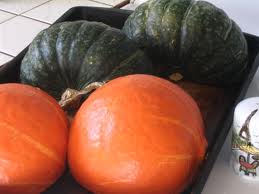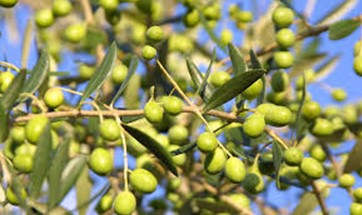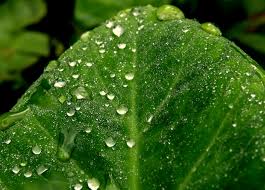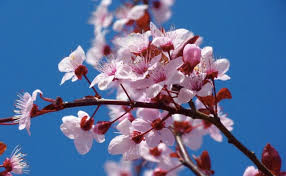Last Sunday was Yom Kippur, I hope it was easy and beneficial for those who fasted.
It somehow feels like Yom Kippur is being extended because of the lockdown: everything is much more quietoutside, the roads are sometimes empty (especially when tightening the lockdown) and the people walking outside have a serious or worried look on their face.
And it is hot. It is always hot on Yom Kippur (and drizzly on Sukkot).
The silence that Yom Kippur brings with it causes many people to be restless: this mandatory shutdown is difficult for them, they feelrestricted, a kind of idleness, thisdangling need to dig inside our soul and figure out was is happening there, the silence around is disturbing.
It is so quiet that you can hear the grass growing. But actually, it's great to hear the grass grow. Lie down on the ground, as usually only children know how to do really well, just like that – the belly and shirt are against the ground, and watch the plants grow at eye level.
Take a moment of silence, of observation – not because there is nothing else to do now, but because we happened to come across a moment free of running around, of errands and concerns, of countless distractions. At this moment, one can look and notice, just for a second, that the grass continues to grow. It's almost like a mindfulness workshop (you can also watch sprouts growing – and then add then to a salad).
This week is the week of Sukkot, which only emphasizes how much we don’t haveUshpizin (guests) in the Sukkah.
The Feast of Ingathering has arrived, a symbol of families and communities gathered together to celebrate the fruits of the annual toil and rejoice in the fresh harvest.
A time when we take a deep breath from the fresh air of autumn, and begin to look at the sky and guess when rain clouds will reach us.
And meanwhile finding other ways to maintain our human connections – a WhatsApp video with Grandma, a Zoomconversation with classmates, a surprise food delivery to someone who is in quarantine. Little things that help keep the morale high and tell the people around you that even though we’re all having a hard time, they are in your heart.
We want to remind you that the store is open as usual during the lockdown, and our delivery department is increased.
So, if you are less inclined to come to the store, or you would like to make someone happy with some delicious food (organic fruits and vegetables, but also delicious dates, chocolate, apple cider, fragrant tea, cookies…
Lots of things that will warm a heart just because theyknow you care) feel free to talk to us (by phone, WhatsApp, email – however convenient for you) and we will arrange a box full of goodies according to your request, and we will also arrange the delivery of course.
As for Sukkot – one of the most interesting representatives of the Four Species is the Etrog, the citron.
The citron is one of the five original citrus fruits (along with the key lime, mandarin, pomelo and citrus hallimi), the rest – including the lemon, and the grapefruit are hybrids.
It originates in the Far East, and wild versionsof it have been found in Papua Guinea, India, and even at the feet of the Himalayas.
Its rind is rough and fragrant, and the wedges are small – so it is typically not eaten. The etrogsthat remain after sukkot, from the four species, are sometimes used to make jams, while the middle layer of the peel can be turned in to delicious candied peels.
In earlier times it was recommended to use it as a cure for various diseases: digestion enhancer, oral hygiene, relief of nausea during pregnancy and even to strengthen male virility.
At the beginning of the 20thcentury, when there were more Arab farmers here than Israeli swamp dryers, it was customary to buy etrogs in Arab villages, out of assumption that they were grown in the traditional manner and without fear of being grafted on another tree (especially in the north and throughout the Jerusalem mountains).
Afterwards, orchards of Etrog spread in the Jaffa area, and as the new Moshavot became established, more orchards were planted among the new settlements in the Sharon and coast areas.
Today there are several species of etrogs that have evolved into those that the Arab farmers grew, alongside the species that originated abroad (such as the Yemenite and Moroccan etrogs).
Have a happy sukkot!
Yours,
Maggie's Garden Team
Forecast:
In the ORGANIC vegetable baskets we expect (draft only):
Cucumber
Tomato
Lettuce
Potato
Cabbage
Swiss Chard
Pumpkin
Parsley
Sweet potatoe
The Large organic vegetable baskets also include:
Eggplant
Spinach
Coriander
In the ORGANIC fruit baskets (NEW – Increased variety, price – 70 Shekels)
Oranges
Pears
Banana
Sweetie
The large ORGANIC fruit baskets also include: ( NEW – Increased variety, price -100 Shekels)
Red pomegrenate
Papaya
The ORGANIC Green Basket:
Swiis Chard
A kind of lettuce
Kale
Dill
Green onion
Sprouts
Spinach












